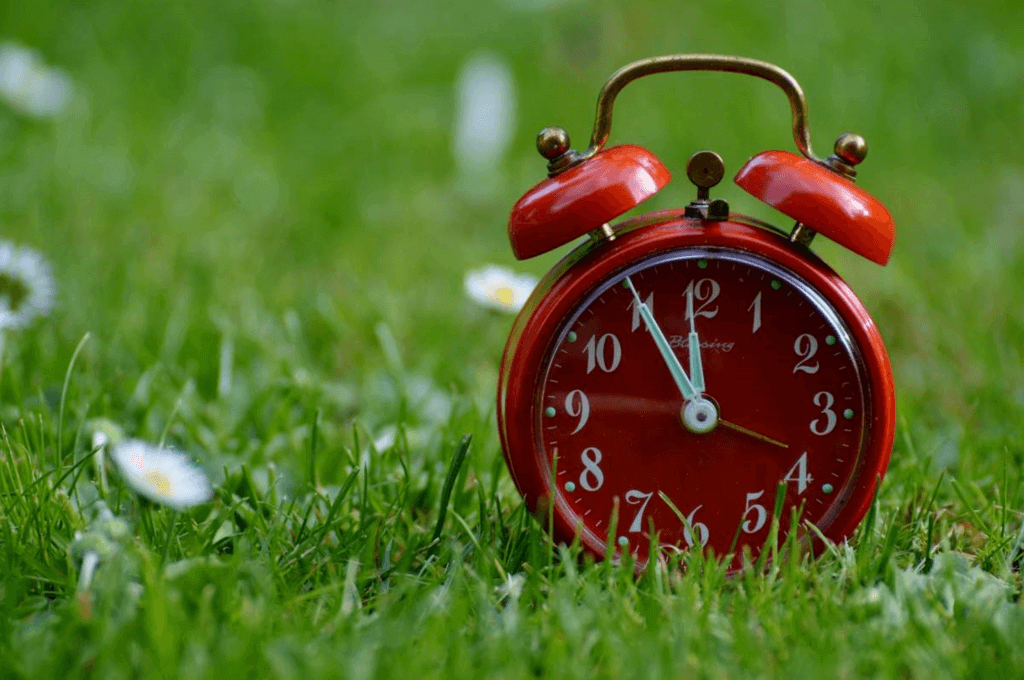Biological Clock Day
Biological Clock Day is observed next on Tuesday, April 28th, 2026 (58 days from today).

Both women and men have biological clocks that influence their moods and behavior on a daily basis. Since your body has a biological clock, it knows when to do things like wake up, go to sleep, eat... Not only humans but also animals, plants, cyanobacteria and fungi have it. The circadian clock connected to our daily habits such as sleeping and eating is known as 'circadian rhythm'.
What is Biological Clock?
Tick tick. Tick tick. Can you hear your biological clock ticking? I'm pretty sure I can.
I definitely don't want to have children anymore! In fact, two was everything I ever wanted and it turned out to be the right decision, as I didn't think I could handle more than that.
Our biological clock doesn't just tell us the perfect time to get pregnant. As far as you know, all people including both men and women, young and old, are influenced by the biological clocks.
For example, have you ever stayed up all night and affected during many days later, or took a flight from one time zone to another and felt tired due to a plane delay? The impact is caused by our internal clock being interrupted.
How It Works
The cyclic rhythm is controlled by “clock genes” that carry the genetic instructions for protein production, which control everything from our sleep and rest, body temperature, heart activity, hormone secretion, blood pressure, oxygen consumption, and metabolism. Moreover, it also affects our moods, especially seasonal affective disorder, the form of winter depression.
Our biological clock includes three parts. They are the light approach, temperature, or other input from the environment to set the clock. Moreover, the genes help the clock control the activity of other genes.
The actual human Circadian rhythm is more than 24 hours by 10 to 20 minutes. The biological clock remains active even when we are removed from natural light. If it does not have daylight, the biological clock will eventually start running on its natural cycle. However, as soon as the morning light hits our eyes, our clocks reset to match the earth's 24-hour day.
History of Biological Clock Day
Men and women, young and old, all have biological clocks! Some biological clocks are changed by seasonal and annual rhythms, such as fertility and aging. However, there are also daily biological clocks, and these are called circadian rhythms, which help the body adapt to changes from day to night. The cyclic rhythm is controlled by the "clock gene". These genes carry instructions such as when to sleep, when to secrete hormones, and information about blood pressure and metabolism. Clock genes can also affect mood.
To help establish a daily biological clock, clock genes receive information such as light and temperature from the environment. However, the circadian rhythm clock can be disrupted by things like air travel, sunlight (or lack thereof) and the seasons, thereby affecting the quality and quantity of a person's sleep. However, the circadian clock can adapt without the normal cycles of daylight and darkness and will start running on its own natural cycle.
Learning more about the Biological clock helps scientists find out the way to counteract the effects of jet lag, seasonal depression and night shift work. Understanding it can also help fight sleep disorders and tell us the best time to take it. Understanding one's biological clock can also help people sleep better, and that's one of the goals of today.
How to celebrate Biological Clock Day
Staying up all night and going to bed late all of these things will upset your biological clock. Nowadays, the balance of the biological clock is greatly influenced by technology. Therefore, the most effective way to celebrate National Biological Clock Day is to adhere to systematic eating and sleeping habits. In addition, spend some time to learn about the Biological Clock and share your thoughts on this day with others on social media using the hashtag #BiologicalClockDay.
Observed
Biological Clock Day has been observed annually on April 28th.Dates
Sunday, April 28th, 2024
Monday, April 28th, 2025
Tuesday, April 28th, 2026
Wednesday, April 28th, 2027
Friday, April 28th, 2028


